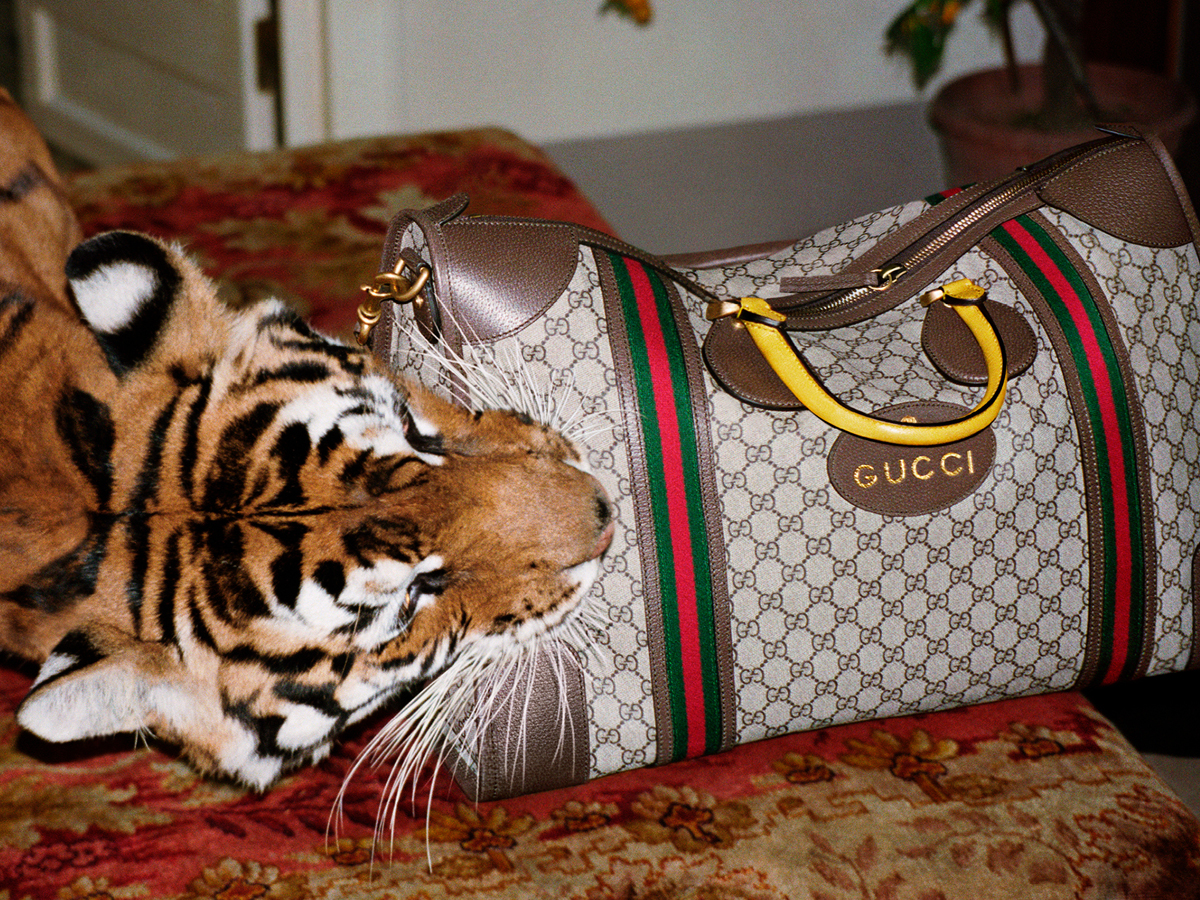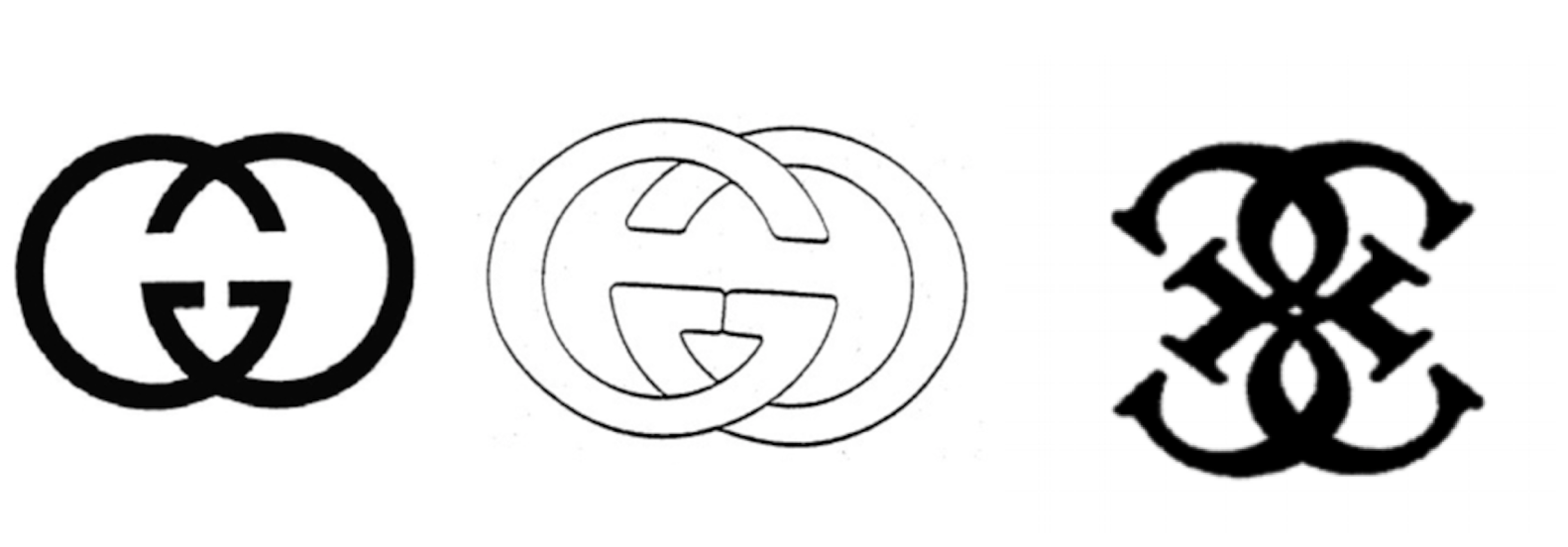
image: Gucci
On Wednesday, representatives for Gucci and Guess confirmed that the two parties, which have been warring in courts across the globe for nearly a decade, have reached an agreement “which will result in the conclusion of all pending intellectual property litigations and trademark office matters worldwide.” The terms of the agreement were not disclosed, per WWD. “The agreement is an important step for both companies in recognizing the significance of protecting their respective intellectual property portfolios and design creativity,” the two companies said in a joint statement.
The settlement comes almost ten years after Gucci accused the comparatively lower-end brand of perpetrating a “massive trademark infringement scheme,” initially filing suit against Guess in 2009 in federal court in New York. In particular, the Italian design house claimed that the interlocking “G” print trademarks that adorn an array of Guess accessories infringe its own “G” print trademarks.
At the culmination of a firey trial, Judge Scheindlin, who presided over the case, awarded Gucci a permanent injunction against Guess’s use of three of the four challenged designs at issue, but awarded Gucci only a fraction of the $221 million damages award it was seeking ($4.58 million) in that case.
The Italian giant wasted no time filing lawsuits against Guess on the same grounds in Italy, Australia, China, and France, and initiated proceedings with the European Union (“EU”) Intellectual Property Office, which ended up before courts in the EU.
As recently as December 2016, the EU General Court, upholding a ruling from the EU Fourth Board of Appeal, held that “the average consumer normally perceives a mark as a whole and does not analyze its various details – only rarely having a chance to compare marks directly, and so having to rely on an imperfect recollection.” As such, it found that Guess’s interlocking “G’s” logo was dissimilar to an array of Gucci’s logos and therefore, could not be blocked by the Italian design house.

Gucci’s logos (left and center) & Guess’ logo (right)
Before that, in May 2013, a Milan court ruled against Gucci, holding that Guess’s Quattro G-diamond pattern is not related to Gucci’s iconic interlocking “G” pattern. In a damning 83-page decision, the judge declared that not only was Guess not infringing Gucci’s trademarks, a number of Gucci’s trademarks, including its diamond-patterned G logo and Flora pattern trademarks, previously registered by Gucci in Italy and the European Union, were not valid.
Gucci subsequently appealed the decision, prompting the Milan Court of Appeals to uphold the decision, in part, and overturn it in other regards. For instance, the appeals court held that Guess had, in fact, committed an act of unfair competition in accordance with the Italian Civil Code by copying a number of Gucci products.
In particular, the Judge held that “Guess has willingly implemented certain measures to avoid a full overlap with the distinctive signs of its competitor, but from a global analysis it is clear that Guess’ aim was to imitate Gucci’s typical motifs, by devising conducts that are not unlawful, if considered per se, but become contrary to professional business fairness, if repeated overtime.”
The appeals court agreed with the lower court in taking issue with the validity of a number of the Florence-based brand’s trademark registrations. Specifically, the court found that Gucci’s trademarks covering “the letter G with dots” and “the letter G with dots serially repeated” are “devoid of any distinctive character,” and that the Flora pattern mark also is not a valid trademark, as its decorative nature does not indicate a specific commercial source.
Still yet, the court sided with Guess in terms of Gucci’s claim that Guess copied its green-red-green stripe, the “Gucci” logo in italics with underline, the italicized “G” logo and of the “serial squared G.” The court held that Guess was using a different color combination and the signs in question were deemed “sufficiently different from a visual and aural standpoint.”
In 2015, in a decisive 44-page ruling, a court in Paris overruled every trademark infringement claim asserted by Gucci against Guess in the parties’ French fight. The Tribunal de Grande Instance found that Guess did not engage in trademark infringement, counterfeiting, or unfair competition. Instead, the three-judge panel invalidated Gucci’s “G” community registratios, meaning that Gucci could no longer claim exclusive rights in those marks.
Meanwhile, in Asia, the Nanjing Intermediate People’s Court of China sided with Guccio Gucci S.p.A. — owner of Gucci’s trademarks and the intellectual property rights of its products — in a dispute with Guess over trademark infringement and unfair competition activities in China.
Interestingly, the Nanjing Intermediate People’s Court held that infringement cases hinge on whether the marks look subjectively similar, not whether consumers are likely to be confused, the latter of which is the key inquiry for trademark infringement matters in the U.S. and most other jurisdictions, and ruled in favor of Gucci, prompting Guess to appeal to Jiangsu Higher People’s Court.
As for the latest twist in this long-running, multi-national trademark battle, it appears like it really might be the last.











